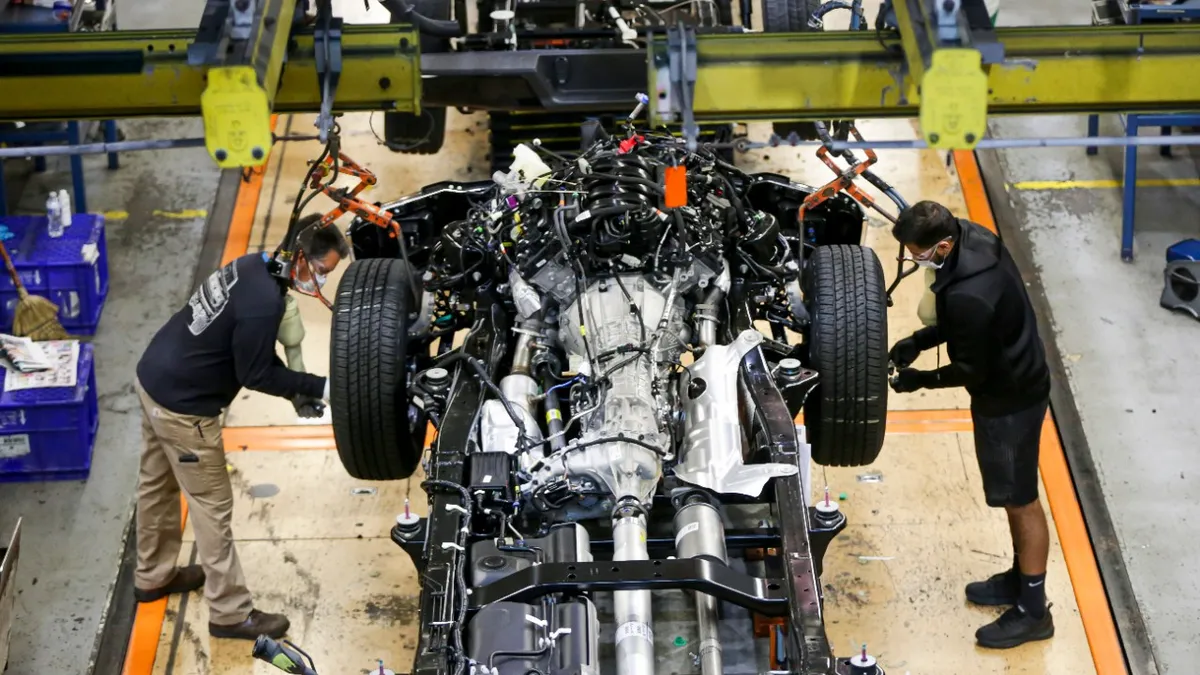Dive Brief:
-
Ford CIO Jeff Lemmer is retiring Jan. 1, 2021, leaving an executive opening for the company's yet-unnamed leader of its technology and software platform, Ford announced Thursday.
-
Lemmer has spent 33 years at Ford and was promoted to CIO in 2018. He reports directly to CEO Jim Farley, who succeeded Jim Hackett as president and CEO Thursday.
-
Lemmer's retirement comes among a slew of Ford leadership changes the company announced as it focuses on quality, cost and restructuring "underperforming businesses," according to the announcement. In addition to the coming CIO vacancy, Ford is hiring a chief marketing officer and John Lawler is succeeding CFO Tim Stone, who is departing to become COO and CFO of ASAPP.
Dive Insight:
With Farley at the helm, Ford plans to introduce fully electric vehicles and grow its commercial vehicle business with a "suite of software services."
Farley said he is going to invest more in the data driven business that will produce ongoing revenue, according to Michael Ramsey, VP and analyst at Gartner.
Central to that strategy is data and visibility. Ford has made a number of investments in automotive cloud capabilities with the acquisition of Autonomic and TransLoc. Part of the company's mobility unit, Ford signed a deal with Amazon Web Services in 2019 to power Autonomic's transportation mobility cloud (TMC).
It was a push for Ford to develop vehicle cloud services, serving as a layer for other "automakers and application developers" to use TMC to work around large technology investments. A move out of the API layer playbook, it allows other organizations to create applications on top of the backbone previously architected by Ford.
Under Farley, Ford is looking to create businesses, particularly in the autonomous vehicle and mobility space. With a CIO vacancy, the company can appoint someone to help grow the software- and data-oriented businesses.
Lemmer was a long-time business executive focused on operations and business structure, Ramsey said. The new CIO will be someone who can help build the data business, more focused on digital platforms and data-oriented technologies.
For the new CIO, reporting structure will emerge as an indicator of business priorities. In half of "fit" organizations, the CIO reports directly to the CEO, compared to 38% in "fragile" organizations, according to Gartner data.
That close relationship allows the "CIO and IT organization to change direction as soon as the CEO decides on a new business strategy," Gartner said.
The roles are becoming closely tied, as CEOs lean on CIOs to deliver next-generation technology that supports and grows the overarching business.
"If you are now reporting directly to the CEO rather than a step below, you are by nature more tied to that CEO, Ramsey said. "When the CEO changes, there are a number of roles that frequently change at the top level."












